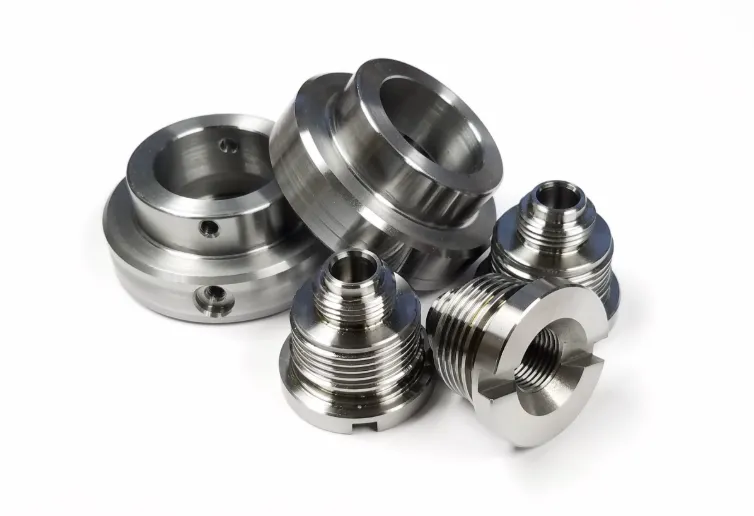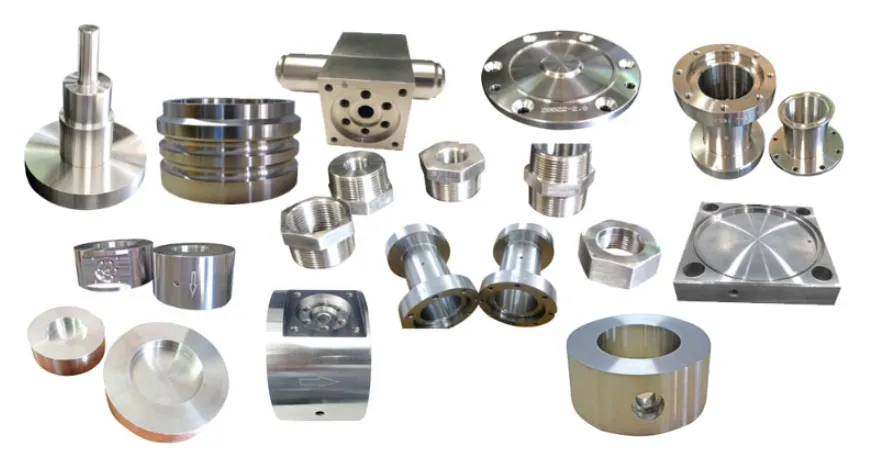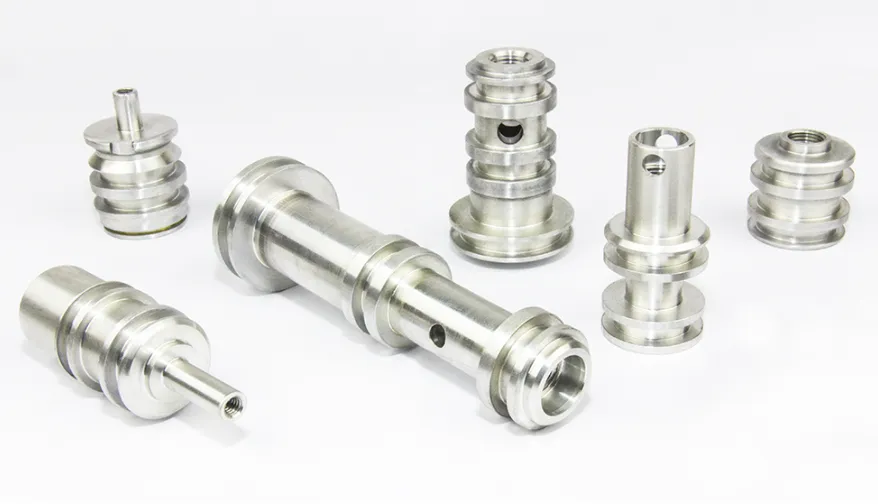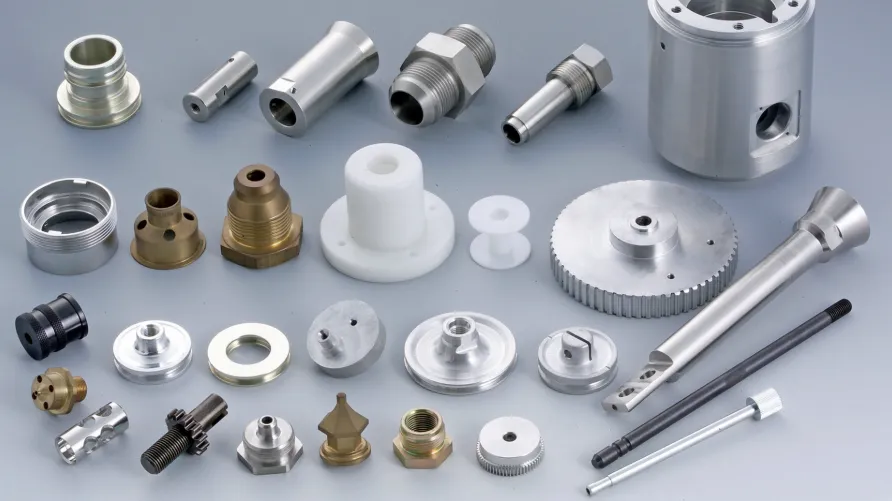In the intricate world of manufacturing, custom machined parts have emerged as pivotal components driving innovation and efficiency across diverse industries. Unlike standard off-the-shelf parts, these bespoke elements are crafted to meet specific requirements, ensuring optimal performance and seamless integration into complex systems. The demand for custom machined parts has surged, propelled by advancements in technology, the need for precision engineering, and the pursuit of competitive advantage in various sectors.
Defining Custom Machined Parts
Custom machined parts are specialized components fabricated to exact specifications tailored to the unique demands of a particular application or project. These parts are typically produced using advanced machining techniques such as CNC (Computer Numerical Control) milling and turning, which offer unparalleled precision and repeatability. The customization process allows for the creation of parts that fit perfectly within larger assemblies, enhancing the overall functionality and reliability of the final product.
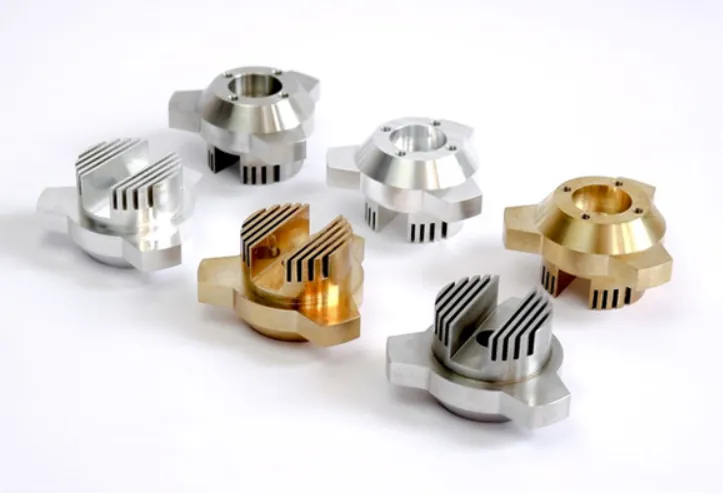 Applications Across Industries
Applications Across Industries
The versatility of custom machined parts makes them indispensable in numerous fields:
-
Aerospace: Precision is paramount in aerospace, where custom machined parts like turbine blades, engine mounts, and structural components must withstand extreme conditions and ensure safety. For instance, Boeing and Airbus rely heavily on custom machining to produce parts that meet stringent aerospace standards.
-
Automotive: The automotive industry utilizes custom machined parts for engine components, transmission systems, and specialized fixtures. High-performance vehicles, in particular, benefit from bespoke parts that enhance efficiency and performance.
-
Medical Devices: In the medical sector, custom machined parts are essential for creating surgical instruments, prosthetics, and diagnostic equipment. The accuracy of these parts directly impacts patient outcomes and the effectiveness of medical procedures.
-
Electronics: Custom machined components such as housings, connectors, and heat sinks play a critical role in ensuring the functionality and durability of electronic devices. As electronics become more compact and sophisticated, the demand for precisely engineered parts increases.
-
Energy: The energy sector, including renewable energy sources like wind turbines and solar panels, relies on custom machined parts for mounting systems, generators, and other critical infrastructure components.
Manufacturing Processes
Creating custom machined parts involves several specialized processes:
-
CNC Milling and Turning: CNC machines remove material from a workpiece to achieve the desired shape with high precision. These machines are programmable, allowing for consistent production of complex geometries.
-
Electrical Discharge Machining (EDM): EDM is ideal for hard metals and intricate designs. It uses electrical discharges to erode material, enabling the creation of fine details that are difficult to achieve with traditional machining.
-
Laser Cutting and Engraving: This process provides precise cuts and intricate patterns in both metal and non-metal materials, suitable for decorative as well as functional components.
-
Additive Manufacturing (3D Printing): While traditionally separate from machining, additive manufacturing complements custom machining by allowing for the creation of complex, multi-dimensional parts that can be further refined through machining.
Advantages of Custom Machined Parts
The benefits of investing in custom machined parts are manifold:
-
Precision and Accuracy: Custom machining ensures parts are manufactured to exact dimensions, reducing tolerance issues and enhancing overall product performance.
-
Material Versatility: A wide array of materials, including stainless steel, aluminum, titanium, and specialized plastics, can be utilized based on the specific needs of the application.
-
Enhanced Performance: Tailored parts are designed to optimize functionality, leading to increased efficiency, durability, and reliability of the final product.
-
Cost Efficiency: Although custom machined parts may involve higher initial costs, they often result in long-term savings by minimizing waste, reducing errors, and extending the lifespan of the product.
-
Flexibility and Innovation: Custom machining enables the development of innovative solutions and the ability to adapt to changing requirements, fostering continuous improvement and competitive advantage.
Market Growth and Trends
The global custom machining market is experiencing robust growth, driven by technological advancements and increasing demand across key industries. According to Grand View Research, the market was valued at approximately $36 billion in 2022 and is projected to expand at a compound annual growth rate (CAGR) of 4.5% from 2023 to 2030. Factors contributing to this growth include the rise of Industry 4.0, which emphasizes automation and data exchange in manufacturing technologies, and the expanding aerospace and automotive sectors requiring high-precision components.
Additionally, the integration of Artificial Intelligence (AI) and machine learning in machining processes is enhancing efficiency and precision, further propelling market growth. Sustainability is also becoming a significant focus, with manufacturers seeking eco-friendly materials and practices to reduce environmental impact.
Choosing the Right Machining Partner
Selecting a reliable machining partner is crucial for the success of custom part projects. Key considerations include:
-
Technical Expertise: Proficiency in various machining processes and the ability to handle complex designs are essential for producing high-quality parts.
-
Quality Assurance: Adherence to industry standards such as ISO 9001 ensures consistent quality and reliability in manufactured parts.
-
Capacity and Scalability: The ability to manage orders of varying sizes and adapt to changing project requirements is important for scalability.
-
Customer Support: Effective communication and responsiveness enhance collaboration and ensure that client needs are met promptly.
Future Perspectives
The future of custom machined parts is intertwined with advancements in technology and evolving industry demands. Emerging technologies such as additive manufacturing will continue to complement traditional machining, enabling the creation of more complex and lightweight components. Automation and AI will further streamline machining processes, increasing throughput and reducing human error.
Sustainability will also shape the future of custom machining, with an emphasis on using recyclable materials and implementing energy-efficient practices. As industries continue to innovate and push the boundaries of what’s possible, the role of custom machined parts will become even more critical in driving progress and maintaining competitive edge.
Conclusion
Custom machined parts are at the heart of modern manufacturing, offering tailored solutions that enhance the functionality, performance, and reliability of products across a multitude of industries. With ongoing advancements in machining technologies and a growing emphasis on precision and efficiency, the importance of custom machined parts is set to expand. Investing in high-quality custom machining not only meets specific engineering requirements but also fosters innovation and long-term success in an increasingly competitive global market.

